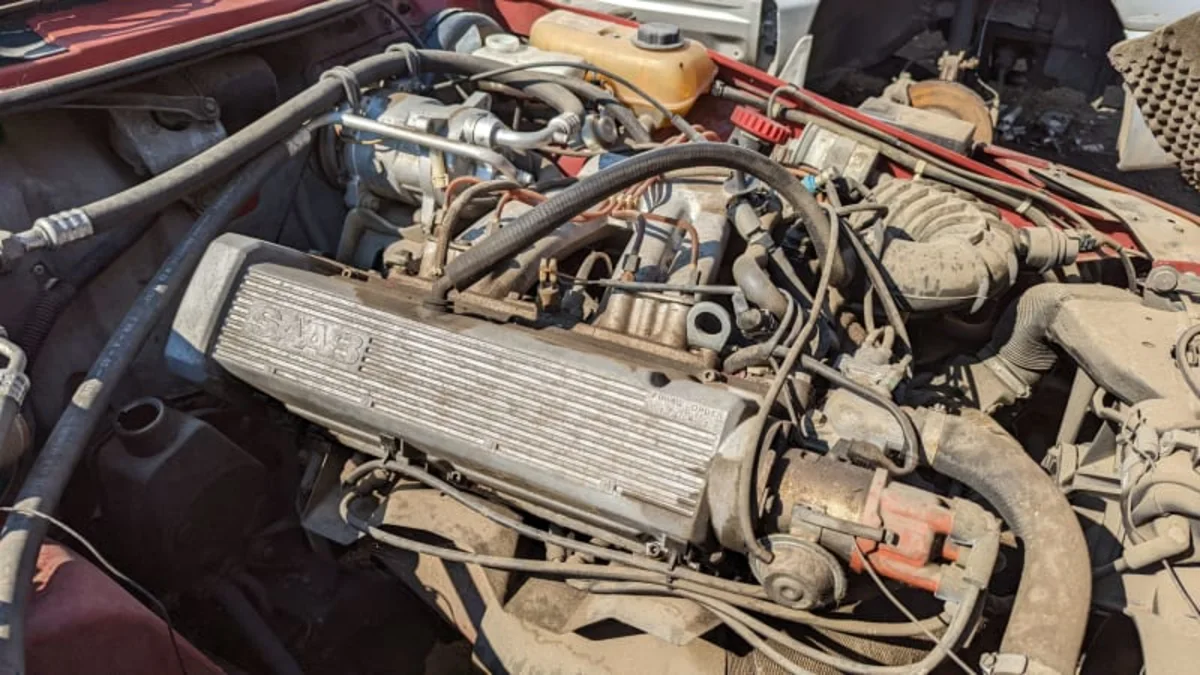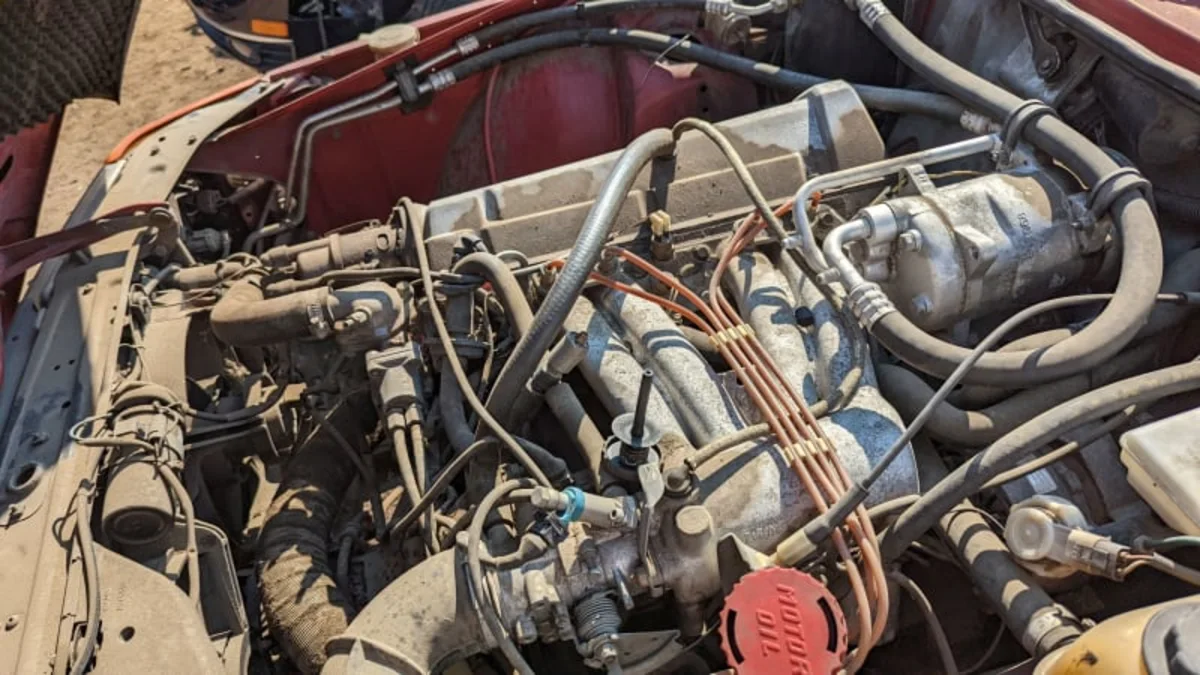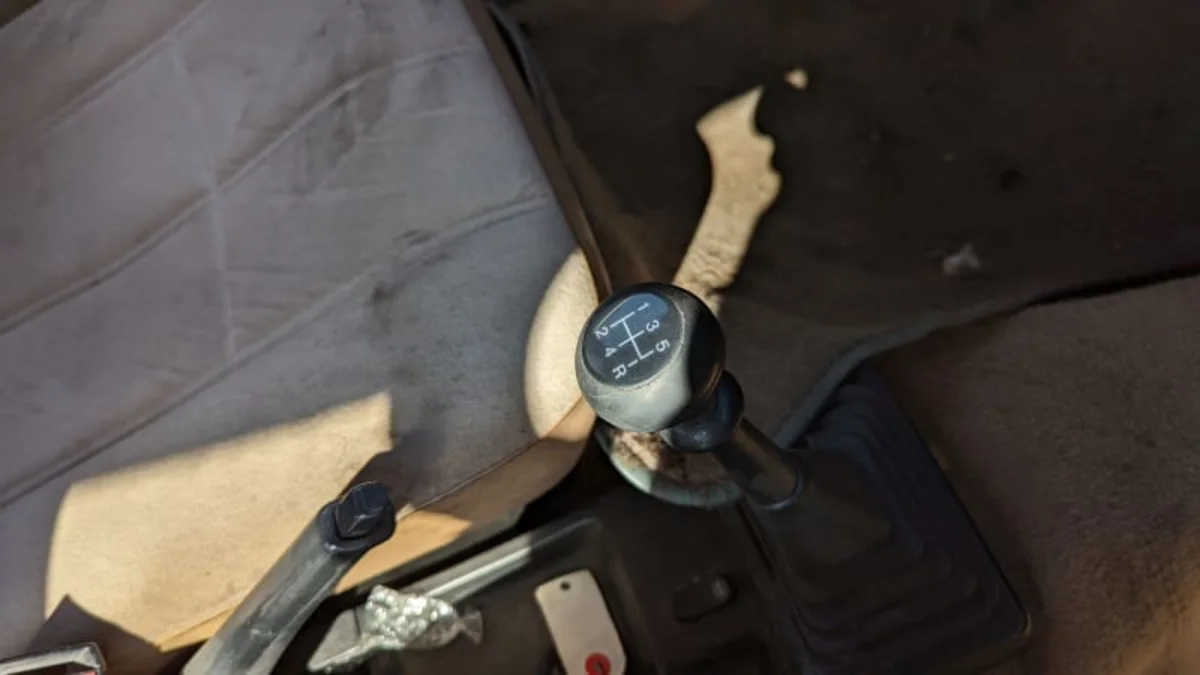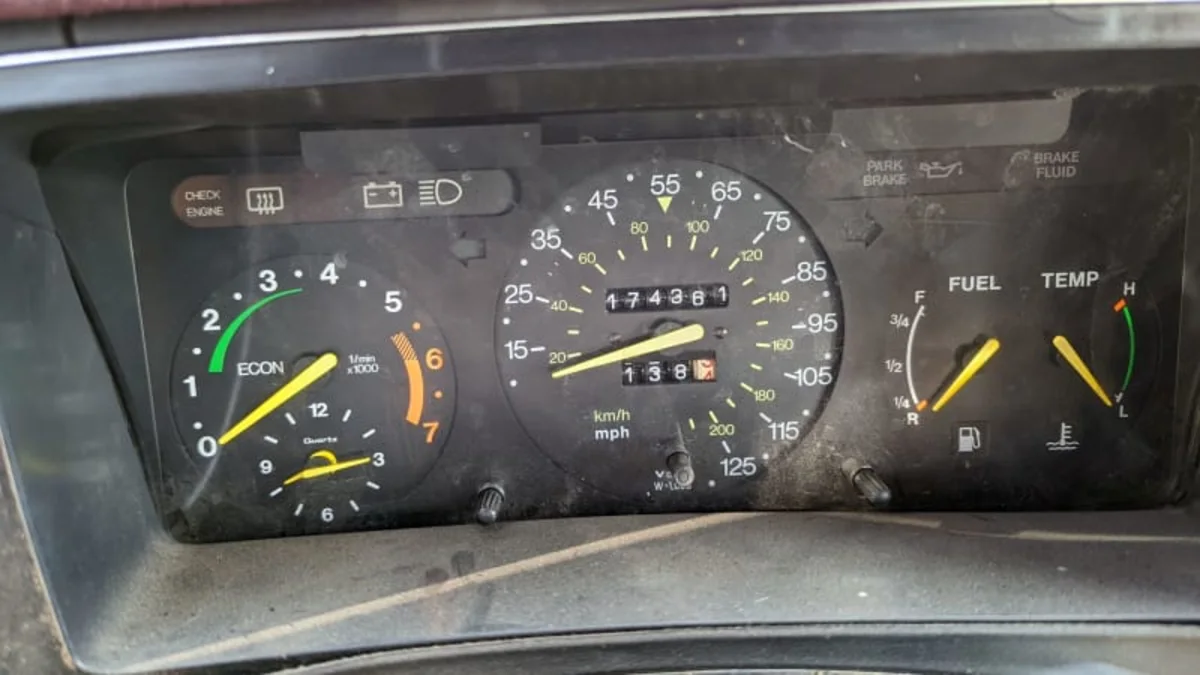Saab sold the original 900 in the United States from the 1979 through 1993 model years (followed by another few years of Opel Vectra-based 900s), and most of the 900s you’ll find today are the higher-end models with 16-valve engines and/or turbochargers. Last year in this series, we saw a 900 Turbo and a 900 Turbo Convertible in Colorado car graveyards, and now it’s time to take a look at a used-up Colorado 900 with the base 8-valve engine and few extras.
The cheapest new 1987 Saab available here was the base three-door hatchback with 5-speed manual transmission, which had an MSRP of $14,395 (about $39,497 in 2023 dollars). If you wanted a new 900 with four doors that year, the price of admission started at $14,805 ($40,622 after inflation). That’s the car we’ve got here.

The engine is a 2.0-liter SOHC slant-four, the direct descendant of the engine originally developed in partnership with Triumph for use in the Saab 99 and Triumph Dolomite. The Triumph TR7 used members of this engine family as well.

This engine was rated at 110 horsepower and 118 pound-feet. The naturally-aspirated 16-valve version in the ’87 900S made 125 horses, while the 900 Turbo had 160 horsepower.

The automatic transmission cost an extra $430 (about $1,180 now); most 900 buyers chose the five-on-the-floor manual. In fact, I have never documented a junked 1979-1993 Saab 900 with an automatic.

This one came close to the 175,000-mile mark during its life.

The paint is somewhat faded, but the interior looks good for a car this age. Its owner or owners took good care of it.

The body has a few dents but no rust worth mentioning. If it had been a 900S or a 900 Turbo, it would have had a better chance of avoiding this fate.
Saab’s innovative technology for 1987 starts at around $15,000 and goes up to the $20,000,000 Viggen (the fighter plane, not the later hot-rod 9-3 that borrowed the Viggen name).
